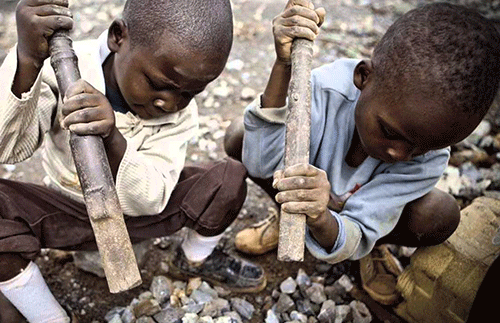A Namibian delegation, consisting of social partners, led by the deputy minister of labour, Hafeni Ndemula, was in Durban, South Africa, from 15 to 20 May 2022, where they made a contribution and deliberated on the call for urgent action to combat the rising numbers of child labour on the African continent and the world at large.
This was the first time the conference was held in Africa.
Namibia recognised the importance of the elimination of child labour and the worst form of child labour, in particular, by making significant advancement efforts. Like other International Labour Organisation (ILO) member states, Namibia ratified the ILO Conventions, including Convention 138 on Minimum Wage, 182 on Worst Forms of Child Labour and UN Convention on the Rights of the Child Optional Protocol on Sale of Children, Child Prostitution and Child Pornography, as a reaffirmation of Namibia’s commitment towards the prohibition and the elimination of child labour.
According to the acting executive director in the labour ministry, Albius Mwiya, Namibia recorded a total of 10 child labour cases between 2015 and 2021.
These cases stemmed from the Kunene, Omusati and Ohangwena regions which recorded one case each, while the Kavango West and Kavango East regions recorded four and three cases, respectively.
“It has been established through routine workplace inspections by labour inspectors that child labour is rather detected in domestic, agriculture economic sectors and the informal economy. Factors contributing to child labour are but are not limited to, poverty – children from very poor families or orphans are made to work for their survival and that of their families; cultural beliefs – some parents have also worked from a very young age – not having been to school may see this as part of the tradition, and cheap or forced labour – the prevailing economic situation in the neighbouring countries forces families to send their children to look for work,” Mwiya explained.
Via a media statement, Mwiya continued there are few cases of child labour and child trafficking from neighbouring countries, namely Angola, Zambia and Zimbabwe.
These cases originate from the purpose to work due to the prevailing economic situation in the world, thus forcing children to leave their families to look for employment for the survival of their families.
“A common practice also exists whereby some parents place their children in the care of distant relatives for education opportunities – and in some cases, these children are subjected to child labour under cohesive circumstances,” Mwiya
stated.
Namibia’s Labour Act, 2007 (No. 11 of 2007) prohibits the appointment of a child under the age of 14 for employment purposes and restricts the appointment of a child under the age of 16, and it highlights the punitive measures accordingly.
In terms of the Labour Act, it is an offence for any person to employ, require or permit a child to work in any prohibited circumstance.
If convicted, such a person is liable to a fine not exceeding N$20 000 or to imprisonment for a period not exceeding four years, or both “Namibia, like any other country, is obliged to and will develop a National Action Plan to End Child Labour in the country and will solicit input from its stakeholders and social partners to ensure the realisation, implementation and monitoring of the plan,” Mwiya pledged.
Photo: Child
Caption:
Eliminating child labour… According to the labour ministry, Namibia recorded a total of 10 child labour cases between 2015 and 2021.
Photo: Contributed


